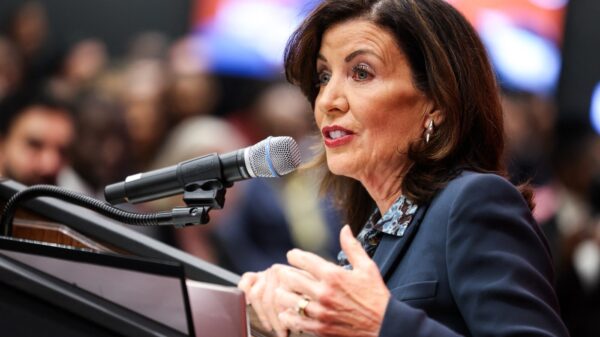Nancy Mace, a Republican representative from South Carolina, and Eric Swalwell, a Democratic congressman from California, recently engaged in a heated exchange on social media, igniting discussions around allegations of personal misconduct and political accountability. The back-and-forth began when Swalwell criticized others, prompting Mace to question his credibility based on past controversies.
Swalwell, known for his vocal opposition to former President Donald Trump, faced scrutiny after Mace reminded him of his past relationship with a suspected Chinese spy, Fang Fang. In a tweet, Mace stated, “Good thing he didn’t. Trump has been exonerated by Epstein victims. And you got caught sleeping with a Chinese spy, am I right?” This remark references Swalwell’s connection to Fang Fang, which has been a point of contention among critics.
Mace’s comments were not just focused on Swalwell’s past; they also included a direct accusation regarding his financial misconduct. She asked, “Did you commit mortgage fraud?” This pointed inquiry seemed to catch Swalwell off-guard, leading to a noticeable silence from him on the matter.
The exchange highlights an ongoing trend in American politics where personal attacks often overshadow substantive policy discussions. Critics of Swalwell argue that his past associations and allegations may undermine his credibility as a public servant. In response to Mace’s allegations, Swalwell typically deflects inquiries about Fang Fang but chose to remain silent this time, raising further speculation among observers.
Public reactions to this exchange have been swift and varied, with many commentators weighing in on the implications of such personal attacks in political discourse. Some argue that these incidents reveal deeper issues regarding ethical standards among elected officials.
Mace’s assertions also reflect a broader narrative within the Republican Party, which has sought to challenge Democratic figures on issues of integrity and accountability. As the 2024 elections approach, these kinds of confrontations are likely to become more frequent as politicians seek to leverage personal controversies to gain political advantage.
While Swalwell has not publicly addressed the mortgage fraud allegations, the implications of Mace’s comments could resonate beyond this single exchange. Political analysts suggest that such controversies could impact voter perceptions and influence upcoming elections.
In summary, the exchange between Mace and Swalwell exemplifies the increasingly personal nature of political debates in the United States. As both parties prepare for the electoral battles ahead, the focus on personal integrity may shape the narrative in unexpected ways.






































































